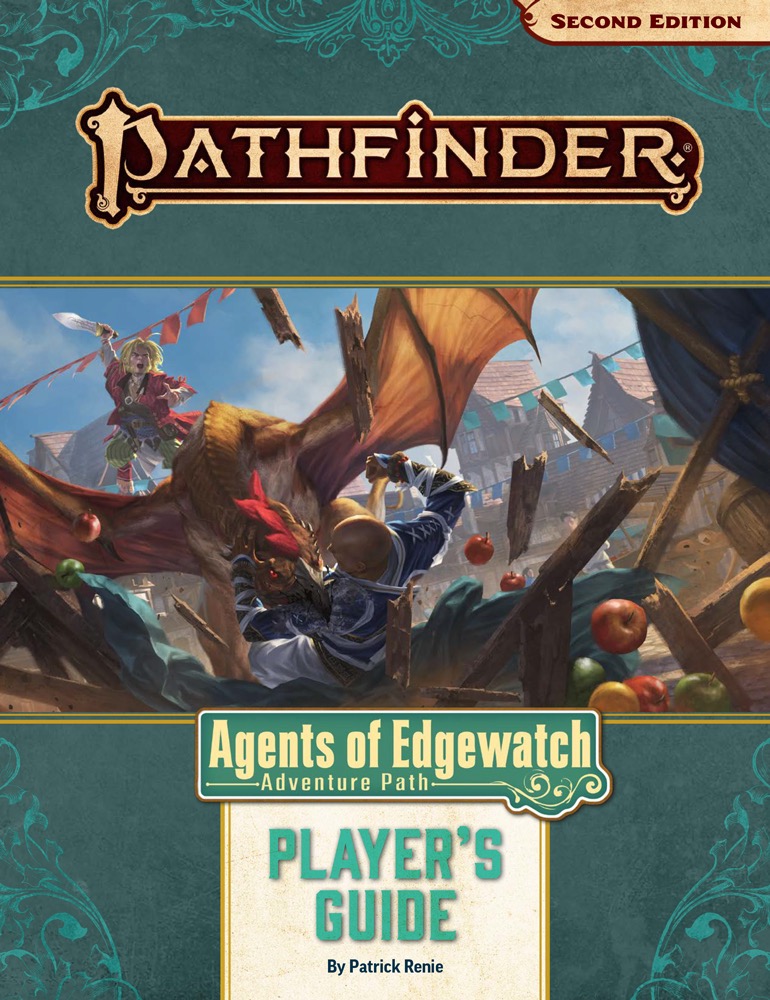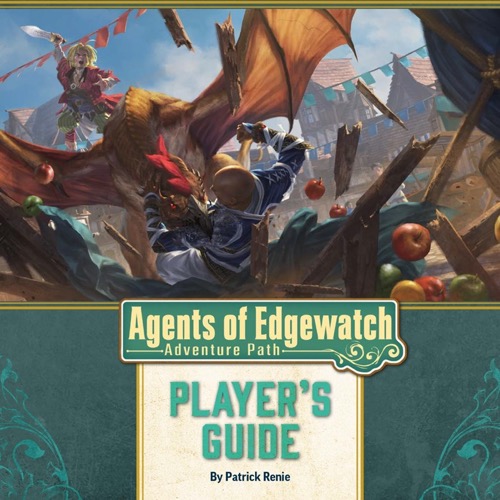The free Agents of Edgewatch Player’s Guide is now available! Player characters take on the role of rookie watch guards in the magnificent city of Absalom, where anything is possible—including the nefarious workings of dastardly criminals! It’s up to the Edgewatch to protect the city, a task made all the more important with this century’s Radiant Festival fully underway. From ex-gladiatorial fighters to cosmopolitan druids, a wide array of adventurers can find a calling as protectors of Absalom’s people. This player’s guide contains spoiler-free advice to prepare your characters for the challenges and opportunities ahead in Agents of Edgewatch.

In addition to advice on how to build your characters so they fit into the ranks of the Edgewatch, this player’s guide includes a host of new character backgrounds to represent which city precinct you served in before transferring to Edgewatch. Whether you were a prodigy from the Learned Guard, an ex-acolyte who joined the Graycloaks after losing the faith, or a tough-as-nails detective from the Puddles, you’ll find your unique skills useful as you guard the newly revitalized Precipice Quarter from dangers both commonplace and out-of-this-world. To help orient yourself, the back of the player’s guide provides details on Absalom, the City at the Center of the World, including a map and descriptions of each of the city’s richly varied districts.
Due to the sensitive nature of roleplaying as city watch members in an Adventure Path, this player’s guide includes new required rules for players as well as guidance for Game Masters on how to mitigate or eliminate potentially upsetting aspects of the campaign—including running the campaign without roleplaying as city guards. This advice is intended to ensure that you have a safe, fun time playing Agents of Edgewatch.
The following is just one of the 10 new character backgrounds in this player’s guide.
Learned Guard Prodigy — Background
For some, the nuts and bolts of keeping the peace are practically second nature. Such is the case for you, a member of the Learned Guard with an incredible mind for investigation as well as a gift for understanding magic. You probably aren’t a hit with your peers, who find your intellect and natural gift of deduction perhaps a bit off-putting, but when left to your own devices you excel, and you get along well with professors and mages such as those who work in Forae Logos or the Arcanamirium.
After no shortage of debating the pros and cons, you decided to transfer to the Edgewatch precinct. Sure, you have a keen understanding of the theories and principles behind law enforcement, but you’ve reasoned that in order to be a truly effective guard you’ll need some first-hand experience in a high-risk area nabbing suspects and protecting innocents—all the while taking fastidious notes and writing your grand thesis on the merits and shortcomings of Absalom’s laws.
Choose two ability boosts. One must be to Intelligence or Wisdom, and one is a free ability boost.
You’re trained in your choice of the Arcana or Occultism skill, as well as Legal Lore. You gain a +1 circumstance bonus to Deception, Diplomacy, and Intimidation checks to interact with Learned Guards and with academics such as librarians and scholars. You gain the Recognize Spell skill feat.
There’s never a dull moment in the city of Absalom, and as a member of the Edgewatch you’ll have your hands full as you rescue citizens and travelers alike from villainous criminals. Make sure you’re prepared to save the day with the Agents of Edgewatch Player’s Guide!
Agents of Edgewatch Player’s Guide Is Now Available!
Wednesday, July 8, 2020











